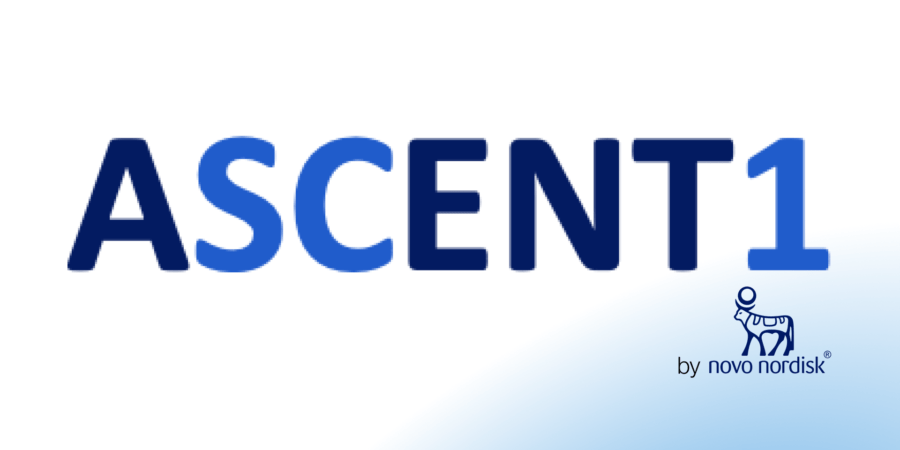ASCENT1 Study
 Patient-friendly certified
What is this?
Patient-friendly certified
What is this?

About the Study
Hemoglobin levels in people living with sickle cell disease are typically lower than the average person. Low hemoglobin levels can cause anemia (less working blood cells within the body) and severe complications such as end-organ damage in sickle cell disease.
NDec is an oral drug therapy being studied in sickle cell disease that could potentially improve hemoglobin. NDec is a combination of two medicines: decitabine and tetrahydrouridine.
Read moreParticipation information
Countries
11 US sites
2 Canada sites
Age
18
Gender
All
Genotypes
SCD type SS
SCD type SC
SCD type Sβ0 thalassemia
SCD type Sβ+ thalassemia
Study Information
Study type
Clinical
Interventions
decitabine-tetrahydrouridine (NDec)
Phase
2
Compensation
Yes, coordinated by site (location)
Am I Eligible?
Requirements
You may be eligible to participate in this study if you:- Are 18 years or older
- Have a confirmed diagnosis of sickle cell disease (including HbSS, HbSC, HbSB0 thalassemia, HbSB+ thalassemia)
- Have had 2-10 sickle cell pain crises (vaso-occlusive crises (VOCs)) in last 12 months prior to screening
- Take hydroxyurea (HU), however you:
- Must have been on HU for 6 months prior to start of screening for the study
- Must have taken the same dose of HU for at least 3 months prior to the start of screening with no anticipated need to change the dose
- Must be willing to stop taking HU treatment 28 days before receiving study drug
- Do not take hydroxyurea (HU), however you:
- Must have never taken HU or
- Must have no HU treatment in the 12 weeks prior to screening with no intention of starting HU during the trial
- Have a body weight between 88-275 lbs (40-125kg)
- Additional lab criteria
Restrictions
You can't participate in this study if you:- Are on chronic transfusion therapy, or likely to begin during the course of the trial
- Have received RBC/whole blood for any reason within 28 days of screening
- Have received erythropoietin drug therapy or other hematopoietic growth factor within 28 days of screening
- Are taking or received voxelotor, crizanlizumab or L-glutamine treatment within 12 weeks of screening
- Are HIV positive
- Have hepatic or severe renal dysfunction as defined by labs
- They have a presence or history of malignant neoplasm (other than basal/squamous cell skin cancer, in-situ carcinomas of the cervix, or in-situ prostate cancer) within 5 years of screening
- Have a planned major surgery during the trial
- Are pregnant, breast-feeding or intend to become pregnant during the trial or within 6 months after the last dose of trial product
- Are not using highly effective methods of contraception during these same time periods
- Males that do not agree to use condoms or highly effective contraceptive measures from screening to 6 months after the last dose of NDec/placebo, 6 months after the last dose of trial product if randomized to HU or 12 months after the last dose of trial product if randomized to HU
- Additional eligibility criteria will apply that will be discussed during screening
Study point of contact
| Novo Nordisk Clinical Trial Call Center - please reference the following ID: NN7533-4470 | |
| 1-866-867-7178 | |
| [email protected] |
Study Sites
- Orange, CA, US, Center for Inherited Blood Disorders
- Torrance, CA, US, Harbor-UCLA Medical Center
- Hollywood, FL, US, Foundation for Sickle Cell Disease Research
- Philadelphia, PA, US, St. Christopher’s Hospital for Children
- Charleston, SC, US, Medical University of South Carolina
- Washington DC, US, Howard University Comprehensive Sickle Cell Center
- New Orleans, LA, US, Tulane Sickle Cell Center of Southern Louisiana
- Oklahoma City, OK, US, Jimmy Everest Center for Cancer and Blood Disorders/University of Oklahoma
- Houston, TX, US, University of Texas Physicians Comprehensive Sickle Cell Center
- Madison, MS, US, Mississippi Center for Advanced Medicine
- Greenville, NC, US, East Carolina University School of Medicine Comprehensive Sickle Cell Center
- Toronto, ON, Canada, Toronto General Hospital
- London, ON, Canada, Victoria Hospital